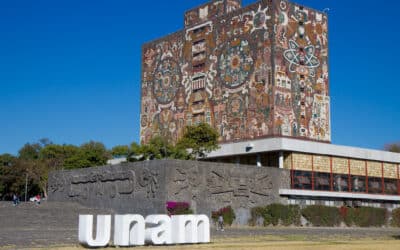Balloon-based ‘test bed’ for climate-change mitigation abandoned.
by Daniel Cressey (Nature)
A field trial for a novel UK geoengineering experiment has been cancelled amid questions about a pre-existing patent application for some of the technology involved.
The Stratospheric Particle Injection for Climate Engineering (SPICE) project is a collaboration among several UK universities and Cambridge-based Marshall Aerospace to investigate the possibility of spraying particles into the stratosphere to mitigate global warming. Such particles could mimic the cooling produced by large volcanic eruptions, by reflecting sunlight before it reaches Earth’s surface.
But the field-trial arm of SPICE — which would have seen around 150 litres of water pumped into the atmosphere through a 1-kilometre hosepipe attached to a balloon — has now been abandoned.
“It is with some regret that today the SPICE team has announced we’ve decided to call off the outdoor ‘1km testbed’ experiment that was scheduled for later this year,” said Matthew Watson, the principal investigator of SPICE and an Earth scientist at the University of Bristol, UK, in an e-mail statement to Nature.
In the statement, which Watson says reflects only his views, he wrote that one factor in the cancellation was the lack of rules governing such geoengineering experiments. Although “it is hard to imagine a more environmentally benign experiment”, in the absence of an agreed architecture, Watson said that the field trial would be “somewhat premature”.
Another factor involves questions surrounding a patent application that was submitted by Peter Davidson, who runs the UK consulting firm Davidson Technology on the Isle of Man and was an adviser at the workshop that gave rise to the SPICE project, and Hugh Hunt, an engineer at the University of Cambridge, UK, who is one of the SPICE project investigators. The patent is for an “apparatus for transporting and dispersing solid particles into the Earth’s stratosphere” by “balloon, dirigible or airship” technology related to the SPICE field trial.
Although the patent application was submitted before the SPICE project proposal, it presents “a potentially significant conflict of interest”, Watson said. UK funding bodies require anyone assessing or applying for grants to declare relevant potential conflicts of interest. “The details of this application were only reported to the project team a year into the project and caused many members, including me, significant discomfort,” said Watson. “Information regarding the patent application was immediately reported to the research councils, who have initiated an external investigation.”
Davidson insists that he told the main funder, the UK Engineering and Physical Sciences Research Council (EPSRC), about the pending patent. “The EPSRC was well aware I might have some IP [intellectual property] before the project was sanctioned,” he told Nature.
Hunt says that only a small part of SPICE is stopping, with the rest going ahead as planned, including climate modelling and analysis of what particles might be ideal to use in geoengineering, and other work on delivery methods. He adds that it is “completely normal” for engineering projects to seek to protect their intellectual property. “The issue here is that in climate science there is a mistrust of IP, and I understand that now,” he says. “We’re not expecting any revenue from any of the IP, but if there is any it will go into a trust fund supporting climate-change-related charities.”
Sandpit troubles
SPICE was hotly anticipated as a first practical step towards a promising potential form of geoengineering. But it was also controversial, attracting protests from some environmental groups who felt that insufficient public consultation had taken place (see ‘SPICE put on ice‘).
Most of the funding for SPICE came from the EPSRC, after a ‘sandpit’ event. The sandpit process involves an expert, who steers discussions, and a team of mentors, who lead workshops with researchers in a specific area. The director and mentors are not eligible to receive research funding — instead, they act as referees for projects devised in the sandpit, eventually recommending what should be funded. SPICE was given an EPSRC grant of £1.6 million (US$2.6 million) after a 2010 geoengineering sandpit directed by Peter Cox, who works on climate systems at the University of Exeter, UK. Davidson was one of the mentors on the sandpit that gave rise to SPICE, but says he absented himself from any discussions of SPICE in the sandpit.
David Manning, a climate-change researcher at Newcastle University, UK, and another of the sandpit mentors, says that SPICE ticked all the boxes for funding, being novel, exciting and risky work. “As an experiment, it was crying out to be done,” he told Nature. He says that during the sandpit “there were no grounds for concern” about conflicts of interest that he was aware of.
Tim Kruger, who works on geoengineering at the University of Oxford, UK, and was the third mentor on the sandpit, says he was aware that Davidson was looking into commercial opportunities, but not that there was a patent application. “When I learned of this, I was not very happy about the fact that had not been disclosed to me previously,” he says.
There is no suggestion that anyone involved in the sandpit or the SPICE project acted improperly. A spokesman for the EPSRC says that the research council was aware of these developments, but was unable to comment.
“It is regrettable that the field-trial aspect of SPICE has now been cancelled, but it is vitally important that the remainder of the project — which is desk- and lab-based — should continue,” says Cox. “The SPICE project represents a vital first step in the research required before large-scale geoengineering on the real climate system could even be considered. I think the UK research councils, especially the EPSRC, should be applauded for having the courage to support projects such as SPICE.”
Originally posted by Nature.


